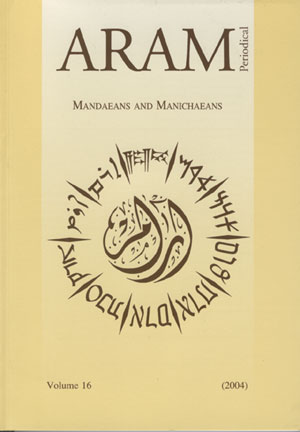 previous article in this issue previous article in this issue | next article in this issue  |

Preview first page |
Document Details : Title: Sobria Ebrietas According to some Syriac Texts Author(s): BROCK, Sebastian Journal: ARAM Periodical Volume: 17 Date: 2005 Pages: 185-191 DOI: 10.2143/ARAM.17.0.583328 Abstract : In view of passages such as the early seventh-century tirade by Sahdona against wine and its effects, it might well be considered surprising that the imagery of drunkenness should nevertheless be employed by a number of Syriac (and, of course, other) writers in order to describe elevated states of the spiritual life. Several reasons, however, can be found to explain this phenomenon, perhaps the most important being the fact that wine and its effects are described in a positive way in many places in the biblical text: besides such obvious passages as Ps. 22(23):5 (“You [God] have spread a table for me..., my cup makes drunk..”) and Ps. 103 (104):15 (Wine causes a person’s heart to rejoice”), or, from the New Testament, the use of wine at the Marriage at Cana and at the Last Supper, it will be found that Wisdom herself “makes drunk” (Sir. 1:16), and examples of blameless drunkenness – as in the case of Noah and Lot, mentioned by Sahdona – are also to be found. Thus for Jewish and Christian readers of the Bible there was a strong incentive to provide a mean ingful interpretation to such passages. One of the first to do so was Philo, and it is to him that the paradoxical phrase “sober drunkenness” (nephalios methe) goes back. Philo’s use of the theme was studied by Hans Lewy in a famous monograph entitled Sobria Ebrietas. Untersuchungen zur Geschichte der antiken Mystik. Lewy also looked at the way that theme was taken up in certain early Christian writers, notably Origen and Gregory of Nyssa. |
|


